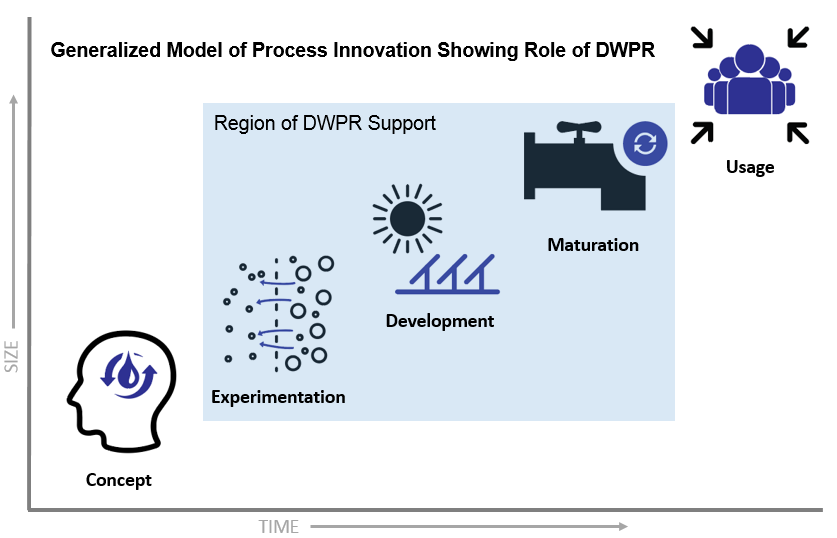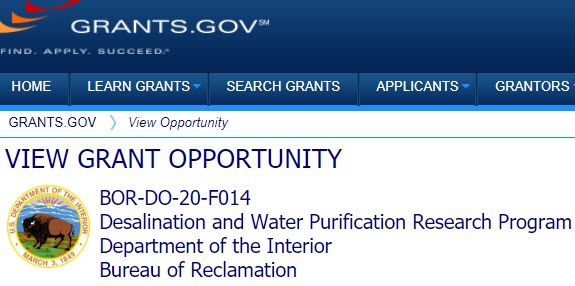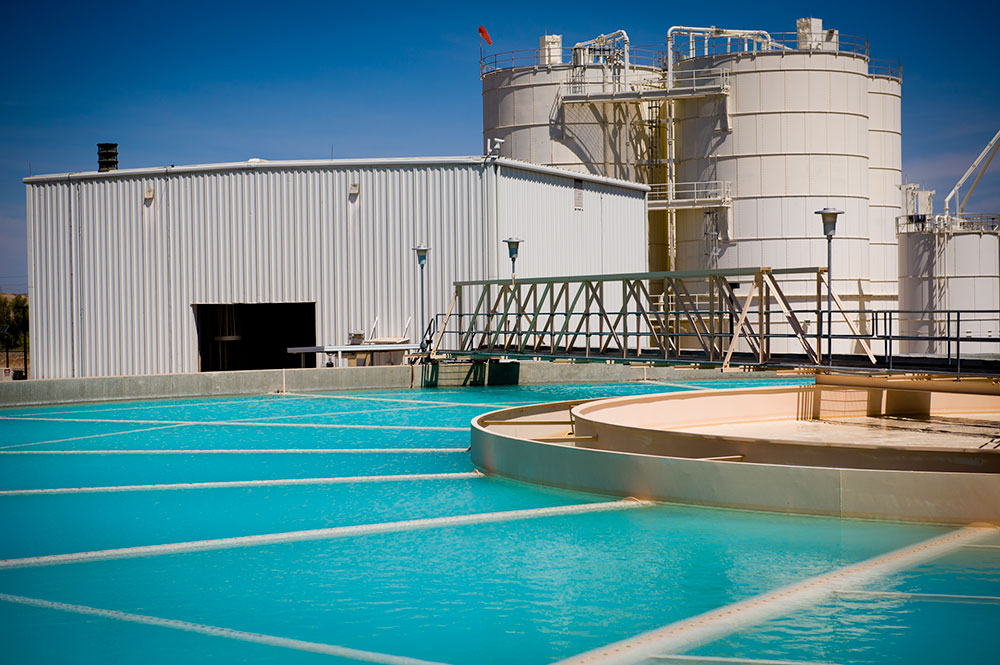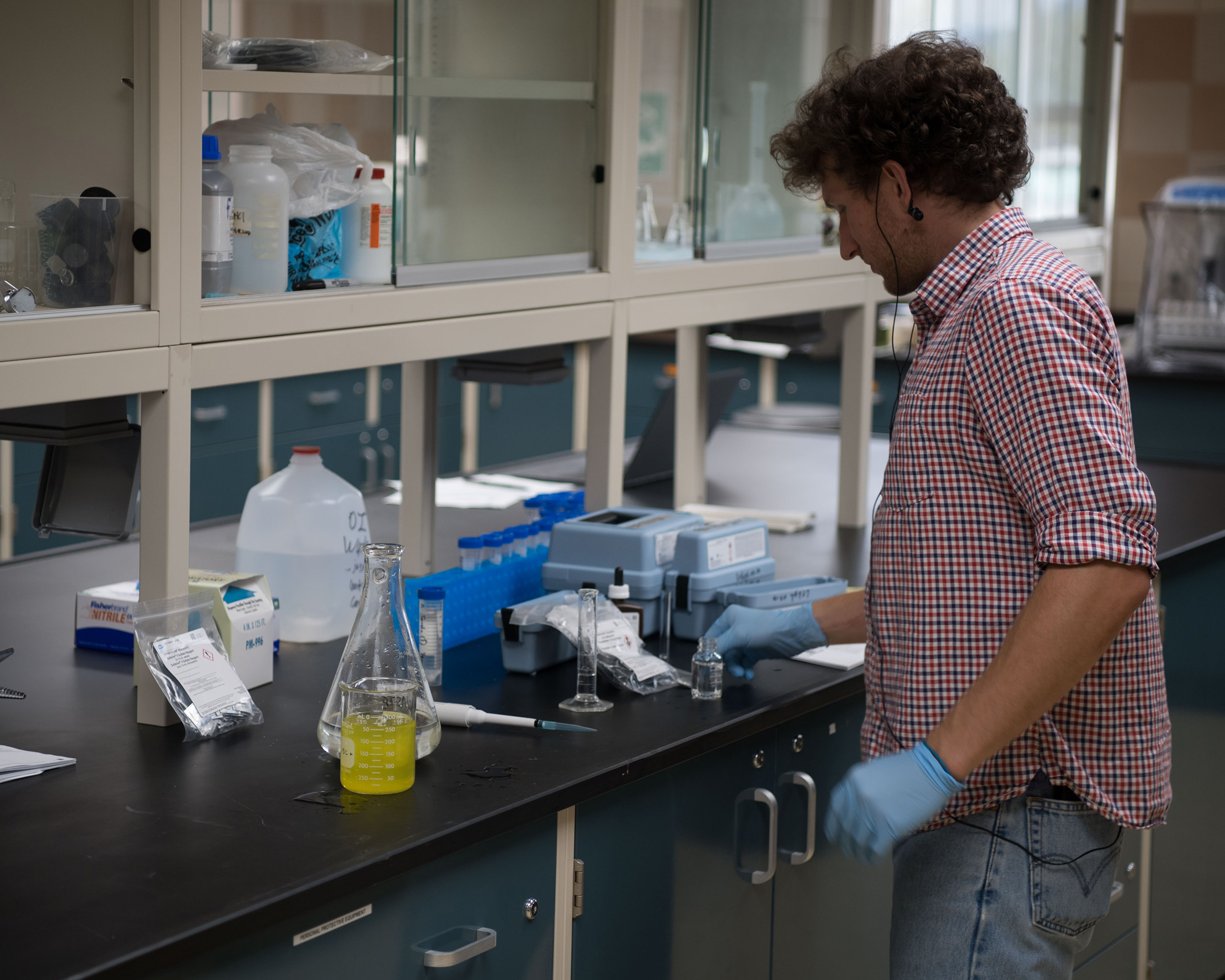- Reclamation
- R&D
- DWPR
- Archive
Desalination and Water Purification Research Program
About DWPR Program
The Desalination and Water Purification Research Program (DWPR) works with Reclamation researchers and partners to develop more innovative, cost-effective, and technologically efficient ways to desalinate and treat water.
News & Media
-
News - Awards
Reclamation Awards $3.6 Million to Improve Desalination Technologies
(March 3, 2021) WASHINGTON – The Bureau of Reclamation is awarding $3.6 million to 10 projects for advanced water treatment research and development. The Desalination and Water Purification Research Program funding seeks to improve technologies for water supply development from nontraditional waters, including seawater, brackish groundwater, and municipal wastewater.
News Release
DWPR Project Descriptions -
News - Awards
Reclamation Awards $5.8 Million to 22 Laboratory and Pilot-Scale Desalination Research Projects
(June 18, 2020) The Bureau of Reclamation awarded $5.8 million to 22 laboratory and pilot-scale desalination research projects to enable broader deployment of desalination and recycled water technologies.
"Desalination is a tool for communities to find new sources of water to meet their needs today and into the future," said Reclamation Commissioner Brenda Burman. "We are investing in desalination research across the U.S. to make it more affordable and energy efficient, giving communities access to reliable and drought-resistant water supplies."
The Desalination and Water Purification Research Program (DWPR) works with Reclamation researchers and partners to develop more innovative, cost-effective, and technologically efficient ways to desalinate water. The goal of the DWPR is to increase water supplies by reducing cost, energy consumption and environmental impacts of treating impaired and otherwise unusable waters. The Department of the Interior is delivering funding to researchers as they take an idea from the lab to a real-world demonstration, which yields products that serve the water treatment community. Reclamation is interested in research where the benefits are widespread and where research has a national significance.
News Release
2020 DWPR Project Descriptions -
Funding Opportunity Announcement
Funding Available to Develop New Water Treatment Technologies
(May 4, 2020) The Bureau of Reclamation is making up to $1 million available through its Desalination and Water Purification Research Program. This funding opportunity is seeking innovative and cost-effective new water treatment technologies. This unique, two-phase funding opportunity will have selected applicants pitch their new technology to technical experts this fall."There is a need to reduce the cost, energy requirements and environmental impacts in treating unusable water," said Program Administrator Yuliana Porras-Mendoza. "This innovative program allows technical experts to help select the strongest applicants."
Reclamation is looking for new technologies or processes to:
-
• Treat brackish groundwater in a less energy-intensive way than currently available.
• Reduce cost, energy, and/or environmental impacts of reverse osmosis/nanofiltration concentrate.
• Improve the efficiency of the water treatment process–either by improvements to pre-treatment, post-treatment, monitoring, sensors, or other innovative process or technology.
• Reduce costs, energy usage, and/or environmental impacts of seawater desalination, including intakes and/or outfalls.
• Reduce costs, energy requirements, and/or environmental impacts of treating impaired and unusable water to standards necessary for an identified beneficial use.
Applications are due by June 17, 2020, at 4:00 p.m. MDT. If your application is selected, you will be invited to participate in the "pitch" event on September 24 - 25, 2020.
News Release
FOA at Grants.gov
Pitch to Pilot Webpage -
Funding Opportunity Announcement
Desalination and Water Purification Research Program: Research Projects for Fiscal Years 2020 and 2021
(October 3, 2019) This FOA’s objective is to invite private industry, universities, water utilities, and other research sponsors to submit applications that address DWPR program goals and objectives at the laboratory or pilot scale studies.Funding Group I: Laboratory Scale projects are typically bench scale studies involving small flow rates (less than 2 gallons per minute). They are used to determine the viability of a novel process, new materials, or process modifications. Research at this stage often involves a high degree of risk and uncertainty. Up to $250,000 in Federal funds per proposed project will be available under this funding group for projects that can be completed within two years.
Funding Group II: Pilot scale projects test a novel process at a sufficiently large scale to determine the practicality of implementing the technology at a larger scale. Pilot studies are used to generate data that can be used to estimate the operational requirements (labor, chemical addition, power requirements) of the process and to show performance with respect to finished water quality goals. Pilot scale projects are generally preceded by laboratory studies (funded previously by DWPR or others) that demonstrate that the technology works.
Up to $800,000 in Federal funds per proposed project will be available under this funding group for projects that can be completed within three years. The funding will be divided by year and should be included in the proposed budget portion of the application. Funding after the first year is not guaranteed and will be made available based on adequate work completed in the previous year.
View Grant Opportunity at Grants.gov
Read FOA -
News - Research Awards
Reclamation Awards $5.1 Million in Research for New Ways to Desalinate and Treat Water
(July 15, 2019) The Bureau of Reclamation announced that 30 projects will receive $5.1 million from the Desalination and Water Purification Research Program to develop improved and inexpensive ways to desalinate and treat impaired water."We are awarding grants to a diverse group of projects to reduce the cost, energy consumption and environmental impacts of treating impaired or otherwise unusable water for local communities across the country,” said Reclamation Commissioner Brenda Burman. “This funding is a direct result of the Trump Administration’s commitment to increase water supply and delivery through improved technology.” Twenty-five awards are for laboratory-scale projects, which are typically bench scale studies involving small flow rates. They are used to determine the viability of a novel process, new materials or process modifications. Awards are limited to $150,000.
News Release
Project Descriptions -
Outreach and Education - WEFTEC IKE Video
Brackish Groundwater National Desalination Research Facility Video Selected for 2019 WEFTEC Interactive Knowledge Exchange
(June 20, 2019) The Bureau of Reclamation's video "Making Desal Cool: How Reclamation's Brackish Groundwater National Desalination Research Facility Teaches 3rd Graders the Science of Turning Salty Water into Freshwater" has been selected for the 2019 Water Environment Federation's Annual Technical Exhibition Conference (WEFTEC) Interactive Knowledge Exchange (IKE).
The Water Environment Foundation (WEF) is a not-for-profit association that provides technical education and training for thousands of water quality professionals. This year's WEFTEC - the world's largest water-quality event - takes place in Chicago, IL during September 21-25, 2019. IKEs are short videos utilizing a creative combination of sound and visual imagery to convey a concentrated message.
The Brackish Groundwater National Desalination Research Facility (BGNDRF) is a test-bed for developing, validating, and demonstrating a wide variety of technologies for desalting water. In addition to this work, BGNDRF has honed its outreach education efforts teaching students in a fun and interactive event called “Discovering Desal.”
Since 2016, over 2,000 third graders have visited BGNDRF during Discovering Desal and participated in learning stations related to the importance of fresh water, how water becomes salty, using reverse osmosis and electrical charges to remove dissolved salts from water, how renewable energy powers desalination technologies, and more. The event reaches all third graders in the Alamogordo Public School system, as well as private schools, homeschool groups, and students from the New Mexico School for the Blind and Visually Impaired. Discovering Desal also includes an on-the-road event for summer school students to small towns near the eastern border of New Mexico.
The IKE video production was a collaborative effort across Reclamation's Research and Development Office, the Washington Public Affairs Office, and BGNDRF staff and volunteers. For more information about Discovering Desal, contact Randy Shaw, BGNDRF Facility Manager, at rshaw@usbr.gov.







